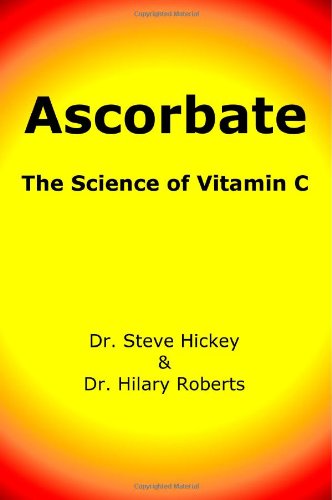Ascorbate: The Science of Vitamin C by Steve Hickey Hilary Roberts


Ascorbate: The Science of Vitamin C Steve Hickey Hilary Roberts ebook
Publisher:
ISBN: 1411607244, 9781411607248
Page: 264
Format: pdf
They are all listed under the Foundation Linus was a dual noble prize recipient and an expert in multiple scientific fields, and I take him seriously. It seems necessary to use intravenous (IV) vitamin C. Findings show a modest vitamin C dose for eight weeks did not lower urate levels to a clinically significant degree in gout patients, but did increase ascorbate. Patients who develop kidney stones should take sodium ascorbate as Vitamin C supplement and must avoid calcium ascorbate with calcium supplements. Pauling was among the first scientists to recognize that it's impossible to attain the therapeutically optimal level of vitamin C by taking the vitamin orally—that is, in the form of the standard vitamin C pills or tablets. I also encourage you to eat plenty of foods that contain it. Pauling makes it clear that he believes that people can have an extra 12-18 years of life if one takes 3,200 to 12,000 milligrams of vitamin C per day . They wanted to In Mauer's laboratory, different anti-caking agents were blended with powdered sodium ascorbate, a common form of vitamin C, and were exposed to different relative humidities. The original protocol recommended by Drs Pauling and Cameron involved a 10-day course of IV vitamin C in which the vitamin was given as a slow-drip infusion of 10 grams sodium ascorbate. In the Save Our Bones Program I recommend taking a minimum of 500 mg a day of Vitamin C, either ascorbic acid, sodium ascorbate, or the ascorbate bound to other minerals. Corroborating his assertions in a study of 11,000 Americans where he . Suppression of Amyloid β A11 Antibody Immunoreactivity by Vitamin C. Lisa Mauer, a Purdue University professor of food science; Lynne Taylor, a professor of industrial and physical pharmacy; and graduate student Rebecca Lipasek study deliquescence, a reaction in which humidity causes a crystalline solid to dissolve.
